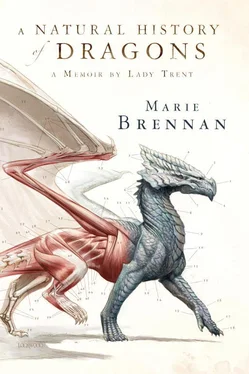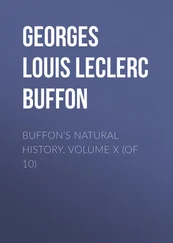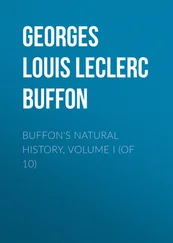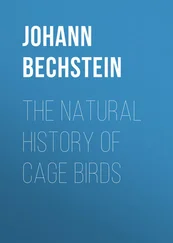“And the sea-snakes that can only be found off the coasts of Prania had nothing to do with it, I’m sure.”
Her words spurred my memory. “Didn’t you present to the Philosophers’ Colloquium about those creatures?”
He dismissed this with a wave of his hand. “Nothing terribly important. I spent six months swimming and being dosed with vile tonics I didn’t need in the slightest; the lecture was my attempt to get something of value out of the experience. I do travel for research, though, as my granddaughter has so pointedly indicated.”
“That must be pleasant,” I sighed. “Jacob and I had hoped to take a tour after our wedding, but circumstances interfered. Where have your travels led you?”
As I had surmised from Miss Oscott’s evident fondness for her grandfather, it did not take much encouragement to get Lord Hilford started in talking about his research. He puffed up a little and hooked his thumbs into the pockets of his waistcoat. “Here and there. After so many years, the places do pile up. I was with the army in my youth, during our wars in Akhia, but the desert doesn’t agree with me; the sun is too harsh.” One hand came away from its perch to rub at his hairless pate. “Not enough to protect me up top, you see, and I went bald at a young age.
“Nor am I much of a sailor,” he went on, “so it’s the mainland for me, I fear. In fact, I think the climate of Prania did more harm to my joints than good. Rheumatism, you know. I intend to try the mountains next—a research expedition to Vystrana.”
There are any number of animals in Vystrana that one could go to study, but in truth, my mind went straight to the creature I had seen a few years before, in the king’s menagerie. “Dragons?”
Lord Hilford raised one white eyebrow at me. “Indeed, Mrs. Camherst.”
“But—do you not study sea creatures?”
“I have a little of late, but only in pursuit of a side theory of mine, regarding taxonomy. If I’m a poor sailor, what sort of seagoing naturalist would I make, eh?” Lord Hilford shook his head. “No, Mrs. Camherst, my interest is primarily in dragons. We know very little of them, compared to other creatures—it’s a terrible shortcoming in our learning.”
It called to mind a fellow Jacob and I had dined with once. “Do you know Lord Shalney, by any chance?”
His laugh turned out to be the basso version of Miss Oscott’s. “Verner? Certainly. I take it you’ve heard his diatribe on our lack of dragon knowledge, then.”
“Shortly after my wedding,” I admitted. “Vystrana, you say?”
“There’s a breed of dragons there—we call them rock-wyrms, though the locals call them balaur. Not a native word; it may be a loan from Bulskoi or Zmayin. Relatively approachable, as dragons go, and one doesn’t have to endure too much in the way of dreadful weather to find them, at least in the proper season. I often wonder what it is about dragons that makes them prefer extreme climates—or is it just that we’ve pushed them back as we’ve spread out? Were there once simple field- and meadow-dragons that liked their living more comfortable? I couldn’t say, but Vystrana seems a reasonable place to try and observe the ones we have.”
I was a better hand at concealing my enthusiasm these days than I had once been. I like to believe the expression I presented to Lord Hilford was one of polite interest, rather than the quivering excitement I held within. “I am sure my husband will look forward to reading about your findings.” He would have to wait, though—first for Lord Hilford to conduct his expedition, then for him to issue his report, and finally for me to snatch it out of the mail and devour every word before giving it to him. Jacob found dragons interesting, make no mistake, but not with my degree of passion. He could read it after I was done.
“Grandpapa brought a dragon back from Vystrana once,” Miss Oscott put in. “He gave it as a personal gift to the king.”
“The albino?” I asked, looking to Lord Hilford.
He nodded, beaming at the memory of his own accomplishment—as well he might, given the difficulties involved. “You saw my little drake, I take it?”
“In the king’s menagerie.” I blushed a little, wishing I could do it as prettily as some ladies, and admitted to him, “Jacob and I met there, in fact. Not just in the menagerie, but in the dragon room itself. It made me so very low when I heard the Vystrani had died.”
The earl looked philosophical. “Yes, well, don’t blame Swargin; he did his best. They rarely thrive away from their homelands. Most efforts to transport dragons fail outright, of course, and then they do poorly in captivity. The imperial dragon-men of Yelang claim they’ve been able to propagate some of their local breeds, but I have my doubts. My little white outlasted that Akhian, though!”
I remembered Mr. Swargin talking about the desert-drake’s delicate constitution. I had hoped for her to survive, but she had succumbed to a pulmonary illness even before my wedding. “Was that one your acquisition as well, my lord?”
“Only in part. I did help capture her—and swore blind after that I would never go to the desert again—but the Duke of Conchett was the one who presented her to the king.”
Not one dragon captured and brought into captivity, but two. My estimation of Lord Hilford was climbing steadily, and had not been low to begin with. “And the Moulish swamp-wyrm?”
He laughed outright. “Nothing could persuade me to attach my name to that thing. Ill-tempered and as intractable as they come, and an ugly example of the breed to boot. Not that Moulish dragons are ever what one might call attractive, mind you. But I’m certain its breath contributed to the ill health of the Akhian—of course, our climate also had much to do with it; I’ll put blame where blame is due—and it bit my little white more than once, when it got out of the control of its keepers. No, Mrs. Camherst, the Moulish beast was not my doing.”
“I hope I haven’t offended,” I said, though I rather doubted I had.
“Not in the least. You do an old man’s sense of self-importance good, asking so much about dragons.”
I returned his smile, and resolved to find some way to thank Miss Oscott for her part in bringing me to her grandfather’s acquaintance. “I wish you luck in your Vystrani expedition. When is it scheduled to depart?”
He waved one hand again, a gesture I was beginning to suspect was habitual. “Not until next year. Hard to arrange things from Prania, especially when you’re being laid low by sea journeys and vile tonics, and I have some relations who insist they like me and would like to see me once in a while.” He gave his granddaughter a mock-suspicious look. “Either that, or they’re luring me home so they can whack me over the head and get the inheritance at last.”
Miss Oscott put on a look of airy innocence, and we all laughed. Then, not wanting to impose more than I already had on the earl’s time, I bid them a good evening and made my way once again through the crowds of Renwick’s.
Locating Jacob took some time. When I succeeded at last, I found him in a foul temper, owing to unspecified fraternal antics. It put something of a damper on my bubbling enthusiasm; this was clearly not a good time to bring up Lord Hilford and his expedition. Instead we made our departure from the hall, and went to the house Jacob kept in town, where we stayed on our Falchester trips. Feeling somewhat deflated, I prepared for bed, then lay for nearly an hour in the dark, staring at the ceiling and thinking of Vystrana.
Advantageous correspondence — An unwise request — I speak my mind — An unproductive morning — The risk of lunacy — What other people might say
Judging by the number of letters we received at our house over the next two months, Lord Hilford was more than happy to correspond with my husband about his lecture and everything else under the sun. Jacob read bits of these out loud to me, mostly anecdotes of natural history, but occasionally the earl’s biting observations about the trials of spending time with family. I gathered that he was glad for the excuse to closet himself away from them for an hour or two and engage his mind with the questions of a colleague.
Читать дальше












